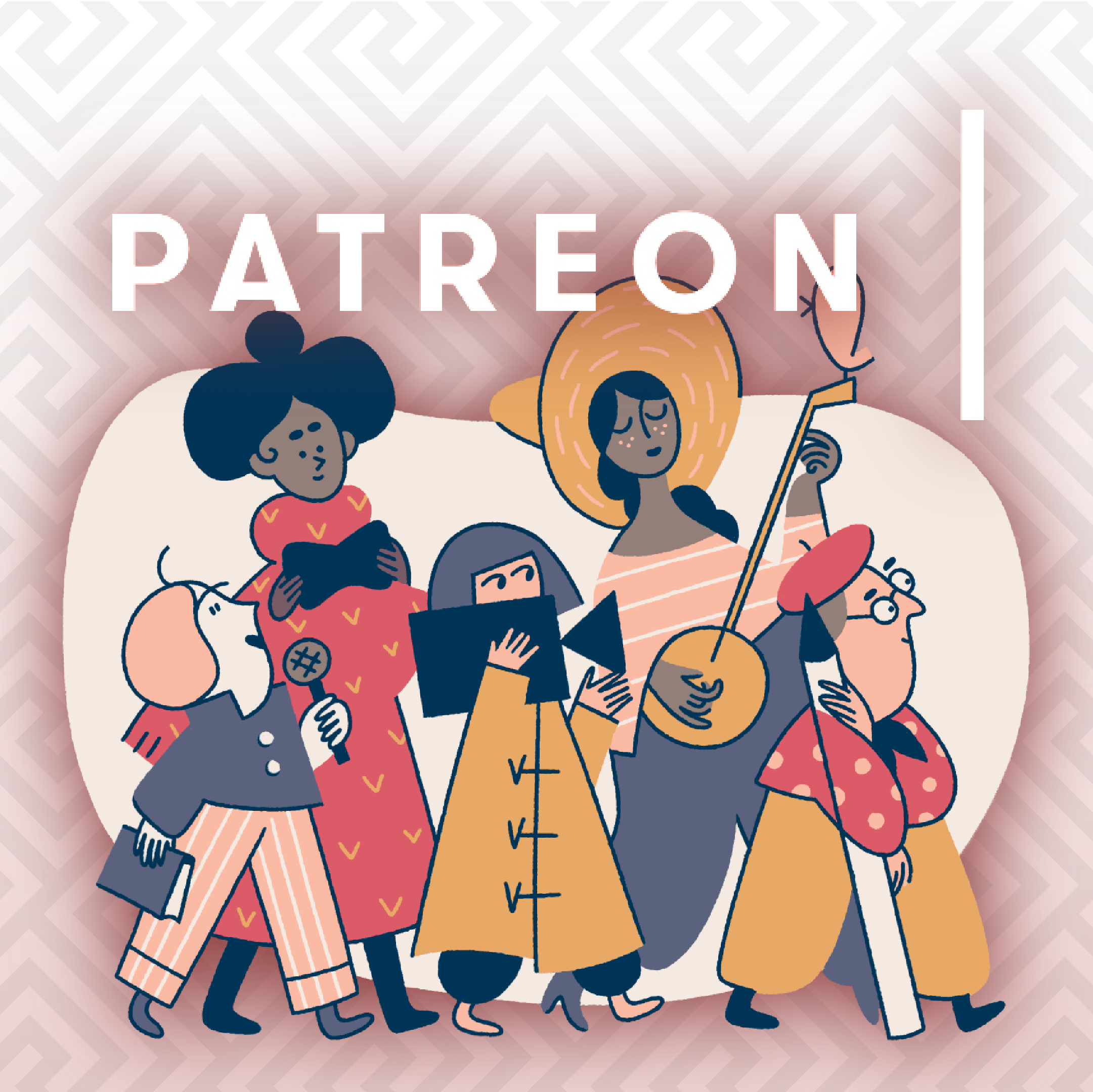Top 5 Patreon female composers of 2019
The role of patronage in the work of female composers
Patronage in some form has been extremely important to most artists, unless they have been born into wealth. But for female vocal composers, patronage continues to be of great significance due to the marginalization of female artwork in general today. We are starting to see a shift in this regard. If we look back through history, one of the greatest patrons has been the church, such as in the instance of Hildegard von Bingen, or a close family relative such as in the example of Barbara Strozzi and her father.
Patreon = Patronage in the digital age
Because I had personal experience in development & fundraising for a fledgling (start up!) choral organization while I was in my late 20s/early 30s, I have a great comfort and sense of purpose related to the patronage system. It gives people a great sense of achievement and investment when they can contribute to causes they believe in strongly, and when they see the tangible results of their contributions it is a satisfying experience for all parties. I believe positive patronage systems support community, enhance well-being of participants and help define core values that can create positive change.
This is the primary reason I am investigating Pateon to support the work of illuminating female composers. I have considered the Patreon platform for my future projects in both performance and composition. It is having an impact and I am intrigued by the possibilities for my followers and want to make them aware of it.
Top 5 Patreon female composers of 2019
Below are 5 female composers successfully using the Patreon platform to fund their musical endeavors. I look forward to learning more about these artists and their usage of this platform in the coming year.
Q&A: Patronage and the female composer
Q: How are patronage and entrepreneurialism connected for female vocal composers?
A: When composers have access to funding they can pursue composition less encumbered by demands of a day job, and with some increased incentive to create their music. Female composers who are balancing the societal expectations of motherhood, for example, may be able to arrange for childcare or someone to attend to domestic duties. A patron may also help a composer have her music heard, by arranging for a venue, performing forces or a conductor to champion her music in a new or traditional space.
Q: Is there any female composer in particular that has excelled at securing patronage?
A: Paola Prestini is a composer based in Brooklyn who is having success with her organization National Sawdust in securing long term prosperity for herself and other composers of new music by using the patronage system. Her long and illustrious list of corporate and individual supporters are listed on the National Sawdust website, and their concert programming is worth a look. We were so pleased to partner with Paola to commission “Still,” a duet for two sopranos and piano which appears on the Voices of Women album and concert series.
Q: Is there any role of historical patronage that acted to suppress female composers?
A: Of course we can infer that even in the name “patronage” the power/money/influence of the patronage system rested firmly in the hands of men. As the church has been a powerful patron of the arts for centuries, the subjugation of women’s roles in that setting have led to suppression of creative expression in corporate worship experiences, many of which include high levels of music creation. My first composition was for a church choir when I was 9, and the newspaper article which heralded my achievement made much about my being a female, in contrast to the vast numbers of men who have composed music for the church. In the private and public sectors, with the advancement of women into higher levels of decision-making positions we may begin to see a shift in the expectation that women who compose music should be supported with the same financial backing as their male counterparts. Unfortunately we have not solved the issue of the wage-gap yet world-wide, so it can be extremely important for women to secure funding through private patronage to make up for their loss in earnings over their lifetime if they are traditionally employed as well as entrepreneurial with their compositional output.



